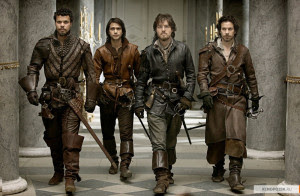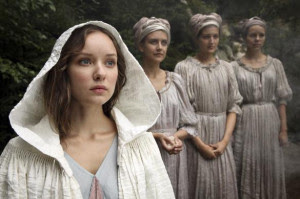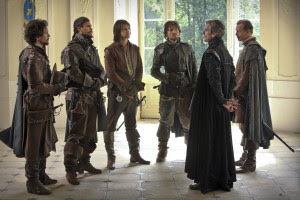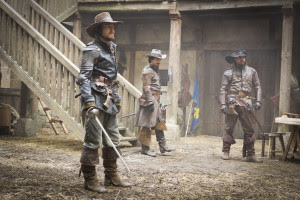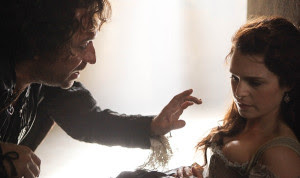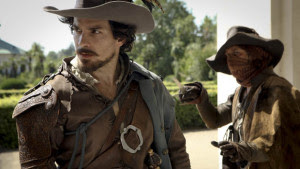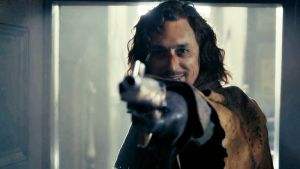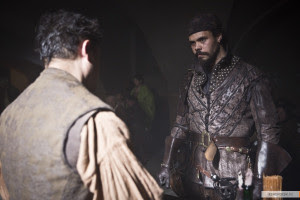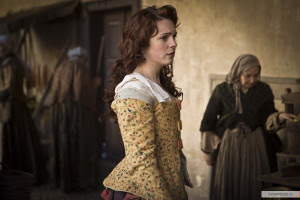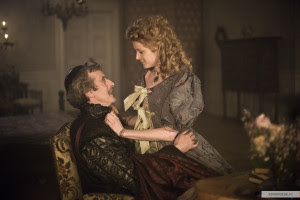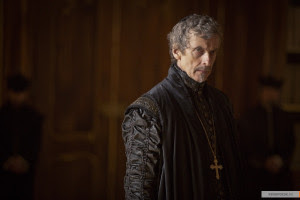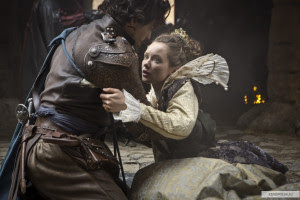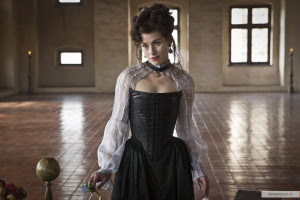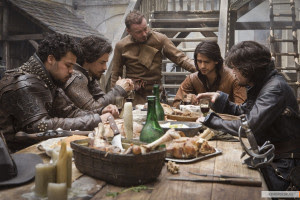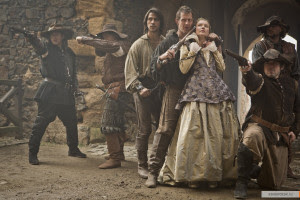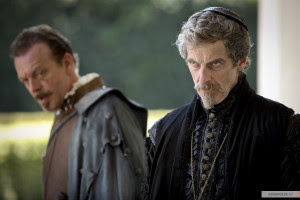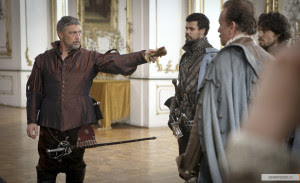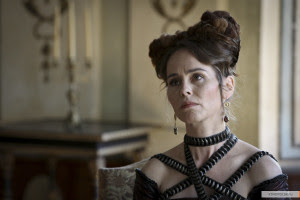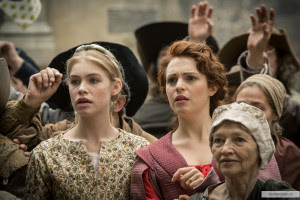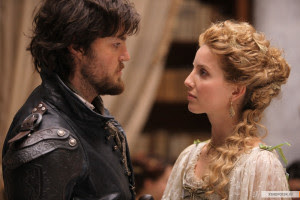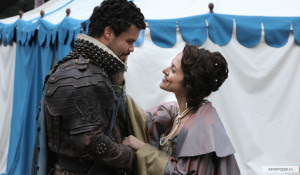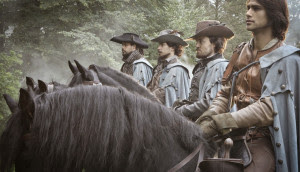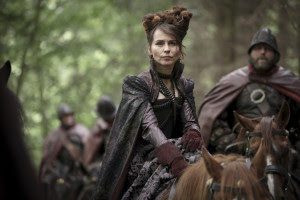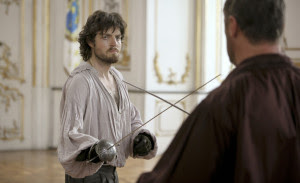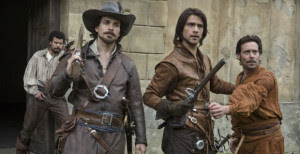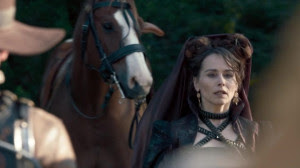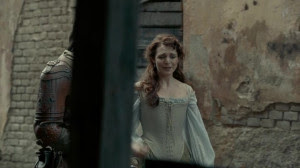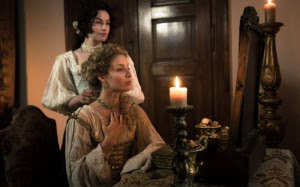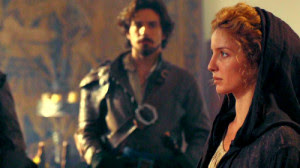"MANK" (2020) Review
When it comes to biopics about Hollywood history, I must admit that I have a slight addiction to them. I really enjoy reading about Hollywood history. And I especially enjoy reading about the industry's so-called "Golden Age". So, when I learned about the upcoming release of "MANK", a biopic about Hollywood screenwriter, Herman J. Mankiewicz, I was pretty eager to see it.
However . . . I never got the chance to watch "MANK" in movie theaters during the fall/winter of 2020-2021. "MANK" had the bad luck to be released while the entire world was in the grip of the COVID-19 pandemic. Although Netflix had released the film in theaters for a limited period in November 2020, the streaming service/production company eventually released it on its streaming service the following month. Because of this, a good number of months had passed before I had eventually watched it on television.
"MANK" began in 1940, when the then young wunderkind Orson Welles hired veteran screenwriter Herman J. Mankiewicz to write the screenplay for his new movie, "CITIZEN KANE". Unfortunately, Mankiewicz is in Victorville, CA; recovering from a broken leg he had sustained in a car crash. With the assistance of his secretary Rita Alexander, he becomes aware of the similarities between the movie's main character and newspaper magnate William Randolph Hearst. This awareness not only inspired Mankiewicz to work on Welles' screenplay, but also led him to recall his history with Hearst, the latter's mistress, Marion Davies; and the smear campaign against Upton Sinclair's 1934 California gubernatorial campaign.
Since "MANK" is not a documentary, but a historical drama, I knew that its narrative would not be completely accurate. However, I do believe that screenwriter Jack Fincher and his brother, director David Fincher, took a lot of liberties in regard to historical accuracies. Perhaps too much. Yes, the movie featured historical accuracies that included Mankiewicz's car accident and broken leg, his employment with both Paramount Pictures and Metro-Goldwyn-Mayer Studios, Upton Sinclair's bid for Governor of California in 1934 and of course, Mankiewicz's collaboration with Welles and John Houseman on "CITIZEN KANE".
However, the main problem with "MANK" is that Jack Fincher tried to connect the efforts to undermine Upton Sinclair's gubernatorial campaign with Mankiewicz's screenplay for "CITIZEN KANE". And it did not exactly work. It failed to work due to Mankiewicz's political beliefs. Considering that Sinclair had ran for governor as a Democrat, it seemed implausible that Mank would have been that upset over the state's business leaders - which included movie studio chief Louis B. Mayer, studio producer Irving Thalberg; and newspaper magnates like Hearst and Harry Chandler - going out of their way to undermine Sinclair's campaign. Mankiewicz's politics tend to skewer toward conservative, except when it came to fascism.
It seems quite obvious that Jack Fincher needed an explanation for why Mankiewicz had been willing to write "CITIZEN KANE", a scathing portrait of William Randolph Hearst. So he invented one. But you know what? I find myself wondering what topic had really caught the Finchers' attention - Mankiewicz's connection with Hearst, Davies and "CITIZEN KANE"; or the 1934 California gubernatorial election. Because honestly . . . it seemed as if both screenwriter and director were more interested in the latter. If that was the case, then the Fincher brothers should have solely focused the movie's topic on the election.
I have another quibble about "MANK". One I found some of the dialogue in the film's first half hour a bit too stylized for my tastes. In one early scene, it seemed as if the Finchers had tried too hard to recapture a West Coast version of the Algonquin Round Table. Also, why did the Finchers shot this film in black-and-white? What was the point? Because to me, this decision to film in black-and-white seemed like another attempt at a homage to Hollywood's Golden Age via a gimmick. And I am getting weary of gimmicks - especially unnecessary ones in Hollywood productions.
Otherwise, I did not have a problem with "MANK". There are at least three reasons why I ended up enjoying this film. One, the movie featured a first-rate character study of Herman J. Mankiewicz. I have read a good deal about him. Granted, the movie was not completely honest in the writer's characterization. The latter's political beliefs would have never led him to get upset, let alone outraged over the campaign against Upton Sinclair. However, David Fincher's screenplay did a very admirable job in capturing Mankiewicz's other traits - including his wit, his addictions and air of weariness. If I must be frank, I believe Gary Oldman's superb performance achieved this even more than the Finchers' screenplay and direction.
Two, although I found the creation of "CITIZEN KANE" rather interesting, it did not strike me as particularly unique. Well . . . I take that back. "MANK" did tell this story specifically from the screenwriter's point-of-view. The 1999 HBO film, "RKO 281", told this story mainly from Orson Welles' point-of-view. However, the movie's depiction of Hollywood's connection to California's 1934 gubernatorial election struck me as the film's more interesting and original aspect. This was especially apparent in scenes that featured a montage of the phony newsreels criticizing Sinclair and the election's final night.
One aspect of "MANK" really impressed me - namely the performances featured in the film. They either ranged from competent performances from the likes of Tom Pelphrey as Joseph Mankiewicz, Charles Dance as William Randolph Hearst, Ferdinand Kingsley as Irving Thalberg, Joseph Cross as Charles Lederer, Toby Leonard Moore as David Selznick, Sam Troughton as John Houseman, Bill Nye as Upton Sinclair and Arliss Howard as Louis B. Mayer. Mind you, I believe there were times when Howard's performance threatened to become a bit too theatrical. But I still enjoyed it. I was very impressed by the performances from Tuppence Middleton as Sara Mankiewicz, Tom Burke as Orson Welles and Amanda Seyfried as Marion Davies. As much as Seyfriend's performance impressed me, I do not believe she had deserved an Oscar or any other acting nomination for her performance. I do not believe her performance was that exceptional.
There were a handful of performances that I really enjoyed. I thought Jamie McShane gave a very emotional performance as test director Shelly Metcalf, who shot the anti-Sinclair newsreels. Frankly, Lily Collins' performance as Mankiewicz's no-nonsense secretary Rita Alexander impressed me a lot more than Seyfriend's performance. And I thought she and the leading man had managed to create a superb screen chemistry. Although I believed that Seyfriend's acting nominations were undeserved, I cannot say the same for Gary Oldman's performance as Herman J. Mankiewicz. I thought he was superb as the screenwriting icon agonizing over his earlier apathy toward the governor's election, while struggling over his alcoholism and creation of the "CITIZEN KANE" screenplay. He truly deserved his acting nominations - especially in one scene in which the main character went into a drunken rant against the Hollywood machine and Hearst.
"MANK" was definitely not the best movie of 2020. Perhaps it was one of the better ones. I still believe it could have been a better film if David and Jack Fincher had not attempted to connect the creation of "CITIZEN KANE" with California's 1934 governor election. But its re-creation of the latter proved to be one of the film's highlights. And the movie also benefited from excellent direction from David Fincher and excellent performances from a cast led by the always superb Gary Oldman. Honestly, I would have no qualms about buying a DVD copy of this film.















































